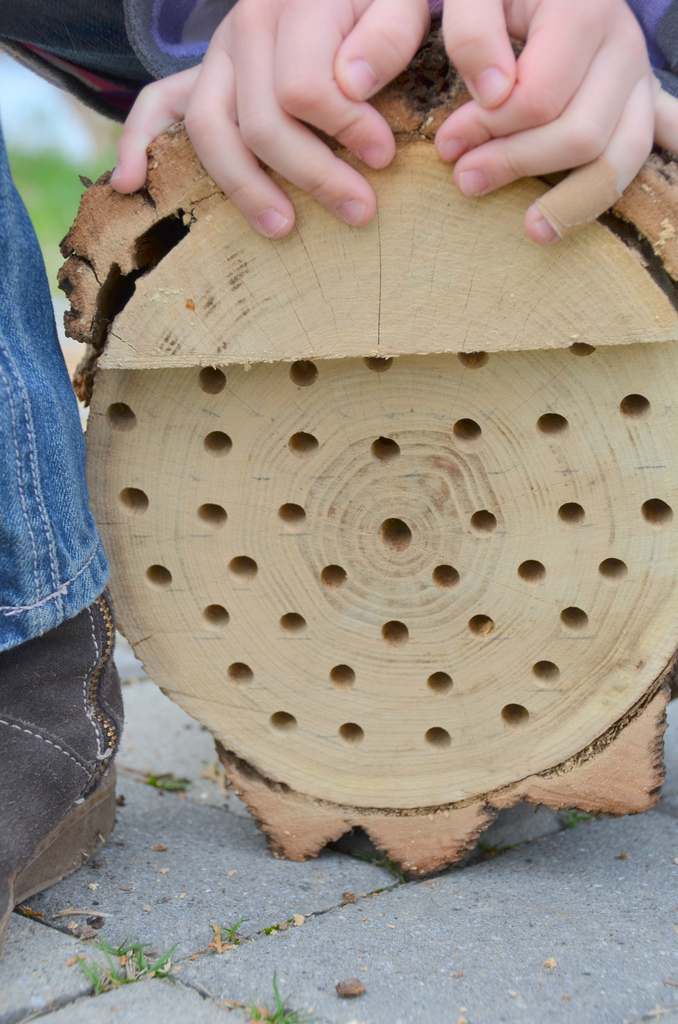How To Become More Self-Sufficient Without Starting a Full-Blown Farm…
Want to start preserving your harvest, making your own soap, or building a backyard root cellar — but not sure where to begin? “Homesteading Advice” gives you instant lifetime access to 35+ practical homesteading books on food preservation, veggie gardening, DIY natural cleaning products (save over $250 per year with this skill alone), brewing, off-grid energy, and a whole lot more…
Click Here To Check It Out Now!
“Where we live, crocuses and forsythia are the very first flowers to bloom as winter transitions to spring.
That happens to be the best time to put up a mason bee nest, and this year we’ve tried our hand at it.
Mason bees are small plant pollinators like the familiar honey bee, but they are solitary and do not produce honey. With no hive or honey to protect, they virtually never sting (unless extremely provoked) and are safe to be handled gently by children.
Mason bees use nests to raise their young.
Although they live alone, they happily lay their eggs in cavities near fellow mason bees in miniature human-made communes…”

